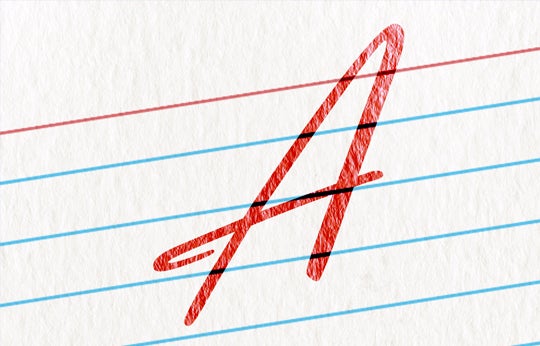The University of Rhode Island’s undergraduate and graduate teacher preparation programs have been recognized by the National Council on Teacher Quality (NCTQ) for their rigorous preparation of future educators in how to teach reading, earning an “A” grade in NCTQ’s new report, Teacher Prep Review: Strengthening Elementary Reading Instruction.
The programs are among just 23 percent nationwide to earn an “A” from NCTQ for meeting standards set by literacy experts for coverage of the most effective methods of reading instruction—often called the “science of reading.”
“Teachers with deep knowledge of literacy practices are best able to meet the varying needs of the children in their classrooms,” said Danielle Dennis, dean of URI’s College of Education and professor of literacy studies who serves on the board of the International Literacy Association.
National data shows that more than one-third of fourth grade students—about 1.3 million children—cannot read at a basic level.
“Our faculty excel at preparing elementary teacher candidates with the knowledge they need to teach developing readers. Our literacy coursework is comprehensive and practice-based, so not only do our candidates learn the concepts but they have the opportunity to apply them in a classroom setting under the guidance of experienced educators,” said Dennis.
To earn an “A,” programs needed to meet NCTQ’s targets for coverage of the five core components of scientifically based reading instruction—phonemic awareness, phonics, fluency, vocabulary, and comprehension—and not teach more than three instructional methods that are unsupported by the research on effective reading instruction.
Experts at NCTQ analyzed syllabi, lecture schedules and topics, background reading materials, class assessments, assignments, and opportunities to practice instruction in required literacy courses for undergraduate and graduate elementary teacher candidates at URI.
URI’s elementary education program is a fully accredited certification program which prepares undergraduate students to teach grades 1-6 and gain an education in liberal arts and sciences, and an understanding of how learners develop.
“Teacher preparation programs are structured to provide a gradual buildup of responsibilities and experiences for teacher candidates,” said Diana Marshall, director of URI’s Office of Clinical Practice and Partnerships. “In student teaching, teacher candidates gradually take on responsibility for the full classroom, including managing the teaching and learning of the classroom for an extended amount of time, engaging with parents, and collaborating with colleagues.”
Marshall said that teacher candidates are engaged in classrooms every semester of their teacher preparation programs. They are placed in as many as seven clinical placements throughout their teacher preparation program, depending on their program.
Students must pass their teacher certification exam before they can student teach. In addition to earning a bachelor’s in elementary education, students must select a second major such as biology, English, mathematics, history, or a foreign language.
URI’s Master of Arts in Education with Teacher Certification Program is designed for students who have already received an undergraduate degree in an area other than elementary or secondary education and want to obtain their teacher certification along with their master’s degree.

